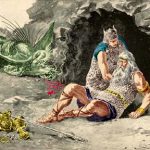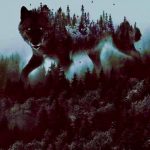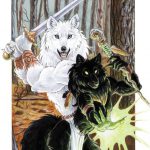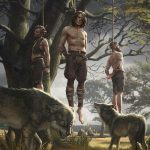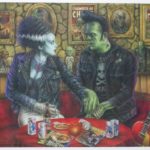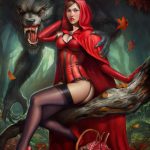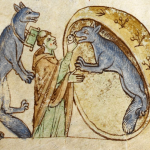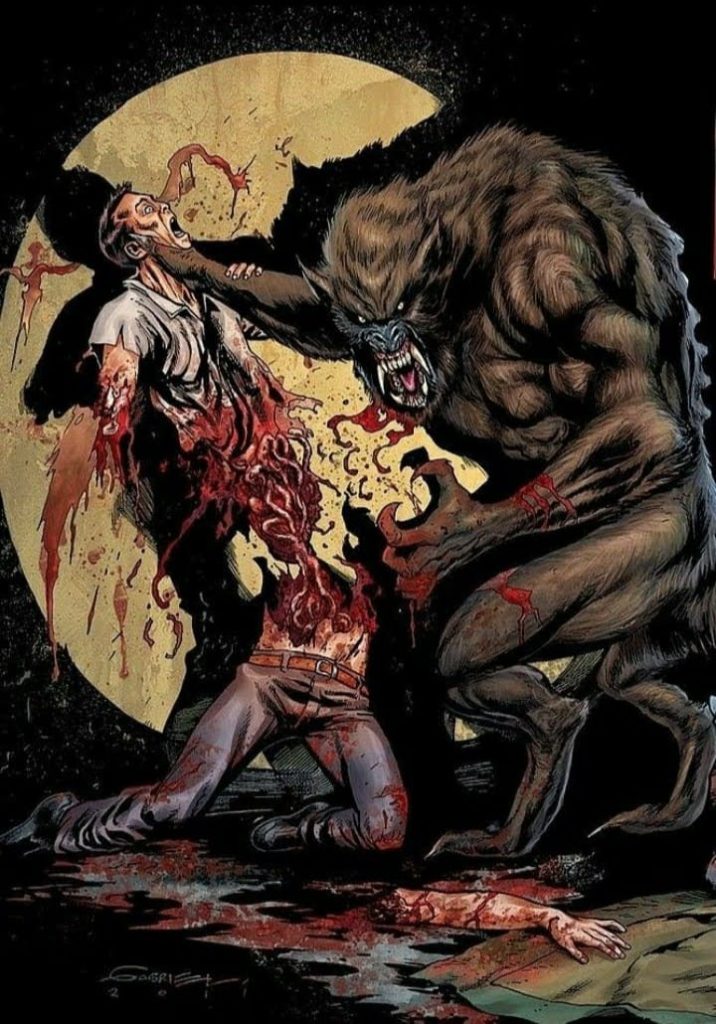
The Old English epic poem Beowulf describes the monster Grendel and his mother in terms that leave little doubt as to their lupine nature – among the words used to describe them are: werga, werhtho, heorowearh, brimwylf, grundwyrgenne, all of which contain the elements wearg/wearh or wylf.
This is a complex word: it is often used simply to mean ‘wolf’, but it also denotes an outlaw or the state of outlawry, in which case it refers to those who have committed crimes that are either unforgivable or unredeemable, and who are cast out from their communities and doomed to wander until they die. Outlaws were traditionally forest-dwellers, and could be legitimately killed.
Grendel is also called a scucca (demon), from which the second element of the name of Black Shuck, the supernatural dog encountered by nocturnal travellers in East Anglian folklore, is derived. It is also said of Grendel that him of eagum stod ligge gelicost leoht unfaeger, ‘from his eyes shone a fire-like, baleful light’ .
Grendel and his mother are both haunters and guardians of a burial mound in marshland, and are given an aquatic aspect to match – brimwylf, for instance, means ‘water-wolf’.
This brings to mind the bodies of water – usually rivers, but sometimes a lake or sea – that are invariably supposed to surround the Indo-European underworld, and those of some non-Indo-European cultures.

